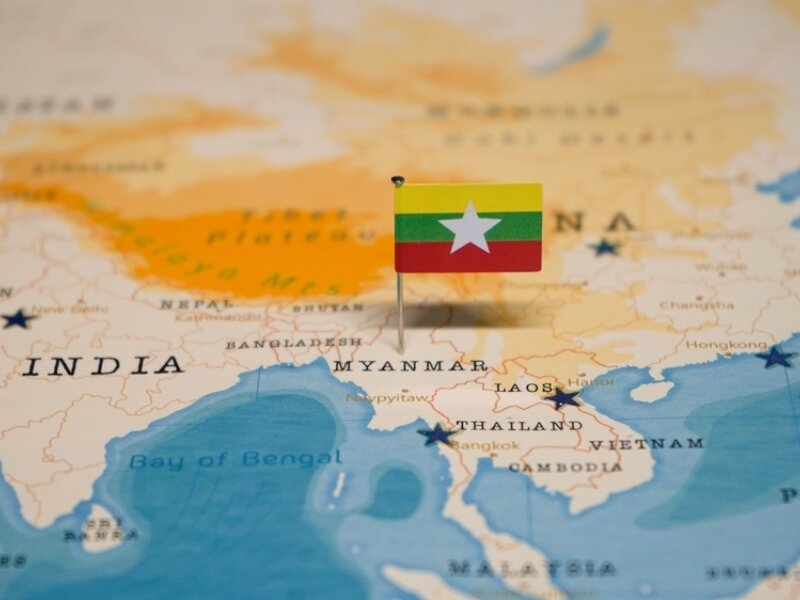Elections in Iraq: what next for the country?
On 10 October Iraq held elections for the renewal of its parliament: results and future challenges of the new government.

The elections for the renewal of the Iraqi Parliament were held on the 10 October. The vote, initially set for next year, was brought forward to address the 2019 mass protests over unemployment, poor governance, corruption and lack of public services, which grew into a broader contestation against the political system and its sectarian paradigm. The Sadrist bloc led by Moqtada al-Sadr ranked first with 73 seats, followed by Mohammad Al-Halbousi’s al-Takaddum Front (37 seats) and former Prime Minister Nouri al-Maliki’s State of Law bloc (34 seats), while Barzani’s Kurdistan Democratic Party came in fifth (32 seats).
Since no political party or alliance reached the parliamentary majority required to form a government, long negotiations to create a sufficiently large coalition are expected to follow.
Several considerations are in order. Firstly, these elections aimed to restore citizens’ confidence in the Iraqi political establishment following the so-called Tishreen protests in October 2019. During the demonstrations, more than 600 protesters were killed and about 25,000 were injured by security forces and Iran-backed militias affiliated with the the Hashd al-sha‘bi, better known as Popular Mobilization Units (PMUs). At the time, the protests forced then Prime Minister Adil Abd Al-Mahdi to resign and hand power over to interim Prime Minister Mustafa al-Khadimi. Although protests dwindled as Covid-19 restrictions were imposed, discontent continued. The turnout in last week’s vote, at just around 43 per cent, is an indication that popular dissatisfaction has led to apathy and remains a key challenge. While their total votes count plummeted, parties belonging to the old political establishment prevailed, and it remains to be seen whether independent opposition candidates, who gained in total 40 seats, will be given the opportunity to play a role in the new government.
Secondly, Moqtada al-Sadr, who gained most of the votes, is likely to play a decisive role in the formation of a new government. A Shia cleric, politician and military leader, al-Sadr has increasingly distanced himself from Tehran by adopting a strong Iraqi nationalist rhetoric and opposing any kind of foreign interference. However, he will need to strike the right balance. On one hand, he will need to distance himself from Iran-backed Shia groupings, notably the PMU’s political wing al-Fatah Alliance – whose meagre 17 seats in the elections were the result of a loss of legitimacy caused by the PMUs’ crackdown on demonstrators during the 2019 protests. On the other, al-Sadr will need to avoid an intra-Shia power struggle which could have destabilizing implications for the country. The recent protests stirred by al-Fatah – which, with the full support of Iran’s Islamic Revolutionary Guard Corps, described the electoral results as a scam – clearly indicate the risk of confrontation.
Thirdly, Iraq cannot be seen in isolation from the regional context. How the new government will balance the interests of its neighbours, particularly Iran, Saudi Arabia and Turkey, will be critical for internal stability. Iran is the country that has the most influence in Iraq through the support provided to its network of allied Shia militias, which has also created tensions with the US and, more recently, Saudi Arabia. The Gulf countries have stepped up cooperation through investments, especially in infrastructure, and commercial ties. Riyadh’s increased engagement with the Iraqi government aims to secure its north-eastern flank from ballistic and drone attacks by Iran-backed Iraqi militias. Turkey is also playing a significant role, as Iraq’s largest foreign investor and trade partner, despite its support for the Kurdistan Regional Government. Regional actors would welcome a new government led by outgoing Prime Minister Mustafa al-Khadimi as a consensus candidate, given that he made it a priority to keep a geopolitical balance among Iraq’s neighbours.
Finally, regional dynamics need to be seen in the context of the US withdrawal from Iraq, expected to take place by the end of 2021. Although this is unlikely to lead to the departure of all 2,500 US units stationed in the country, many are wondering what the implications could be, including the possibility of a resurgence of Daesh and Al-Qaeda – the risk of which is significantly heightened in the wake of the American withdrawal from Afghanistan.



